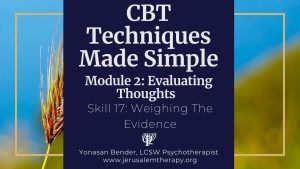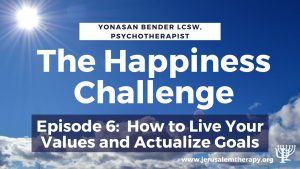Noach didn’t build his boat overnight. Chazal put the construction time-table at 120 years and the problems that ship stood to solve were even longer in the making. The construction project was a massive warning – shape up or you won’t ship out. Upon leaving the ark, Noach’s first order of business was to build an alter to Hashem sacrificing a huge percentage of the very animals he saved. A tad counterintuitive, at first blush. As the world has held its breath watching this Corona pandemic unfold, it’s easy to miss the meaning. Ask any neuropsychologist – when gripped by terror, our analytic brain shuts down. A map of meaning is necessary to jump start our brain. It keeps us moving in the right direction and the Torah’s account of Noach is just that. How do we size up our current situation through the lens of the flood? How can we best translate its lessons into a strong game plan to weather this storm?
The primary message of the flood is a warning. Beware of labeling natural disasters as random and meaningless. What seem to be a sudden freak accident is the culmination of a lifetime of error and willful blindness. On the plus side this eternal truth means we have the ability to act. We’re not as helpless as we think. All of us can pitch in to build the ark. The down side is this demands of us to take on a fair amount of uncomfortable responsibilities at times when it isn’t obvious we need to go to the trouble. In the 120 years Noach built his ark, human civilization was blossoming. They scoffed at his efforts. “Who builds a giant boat in the middle of the Middle East?!” Short term thinking, the bane of most mental health problems, couldn’t fathom it. “It’s a desert!” Even in the desert it can rain.
Of all the medical professionals addressing the public, few frame the Corona pandemic as short sightedness and none do it with the prophetic panache as Dr. Michael Osterholm. Being an essential player in serious health organizations is a typical Sunday morning for Dr. Osterholm. He’s director of The Center for Infectious Disease Research and Policy. He’s sat on the committee or directed almost every serious health organization like the CDC, WHO, and Department of Health. He’s served as health advisor to four US presidents. He also advises the Department of Defense in their counter bioterrorism program. In his 2017 book, Deadliest Enemy: Our War Against Killer Germs, Dr. Osterholm calls for action like a modern day Noach. Pandemics are coming, they will harm us, and nine times out of ten it’s well within our power to stop them.
Reading the book, you can’t help but feel like you’re reading today’s headlines. China is a petri-dish for disease. Their wet markets are the perfect breeding ground for viruses to lethally mutate and spread. Close the wet markets. Governments are investing pathetic amounts on vaccine research to save lives and protect the world economy. Increase the budget. Meta-vaccines can be produced to provide some protection in slowing down diseases. They will reduce the death-toll and buy time to produce specialized vaccines to finish the job. Push forward research. China is a giant in the production of medical supplies. If disease strikes there, the supply lines will swiftly shut. This will leave hospitals around the world powerless. Invest in domestic supply production. Each of these “professional prophesies” came true. Like the ark, people saw Dr. Osterholm’s book. It was well received. Important policy makers read it. And like the ark, people went on ignoring it
Knowing how we got here is worth a lot in sorting ourselves out to do our part in avoiding the next flood. At the same time, knowing what to do now for this flood is the immediate concern. Here too, Noach provides a clear answer – sacrifice. What is it and how can we implement it?
Noach leaves the ark and sees the desolation. Nothing is left. In response, his first order of business is to sacrifice the too-few animals he saved from destruction. This provides a powerful lesson in how to relate to loss. The general message is turn to God. The interesting twist in how to go about that is to give up what you have now. Sacrifice now to invest in a better future. Give up short term thinking in the most dramatic way you can. Give up the animals you desperately need now. Take upon yourself a long-term vision for the future. What is striking is a powerful argument can be made to keep the animals. A powerful argument can be made to not exactly keep to the rules of social distancing. Eating to survive in an empty world is important. Weddings are important. Children going to school is important. Close contact with friends and loved ones is important. It wouldn’t be a sacrifice if you were giving up something you didn’t want.
In times like these it’s easy to make more bad-short-term decisions. The bottom line is resisting the urge to do that. Sacrifice time logistically figuring out how you can keep your professional life going by phone. It’s cramped hiding out in the bedroom away from the kids but it’s worth it. Sacrifice by making an effort to keep your kid’s education going. At the very least it gives them something to do so they don’t drive you crazy jumping on the furniture. Think where you can donate some of the money you’re using to get through this difficult time to help your neighbor who doesn’t have it as easy as you. Unless you’re working at the supermarkets, a lot of people are out of jobs. Take a second thought on life stabilizing luxuries like exercise, sleep, and therapy. Being cooped up in your tiny apartment might make you feel like you don’t have the time or the energy. However, it’s these things that have the strongest impact on emotional wellbeing. They will give you the gas to get through this in one piece. Sacrifice means planning for the future as much as you responsibly can. Sacrifice means ensuring you have a future worth arriving to after the difficult present is over.
Rabbi Yonasan Bender, LCSW, graduated from Hebrew University’s School of Social Work. He works with adults, couples, and children in his private therapy practice in Jerusalem. He holds several semichos from Rav Yitzchok Berkovits, shlita. To share your thoughts, experiences, questions, or a different perspective, you can reach Rabbi Yonasan Bender LCSW at 053-808-0435 and at info@jerusalemtherapy.org. Learn more about Rabbi Bender and his work at www.jerusalemtherapy.org.




